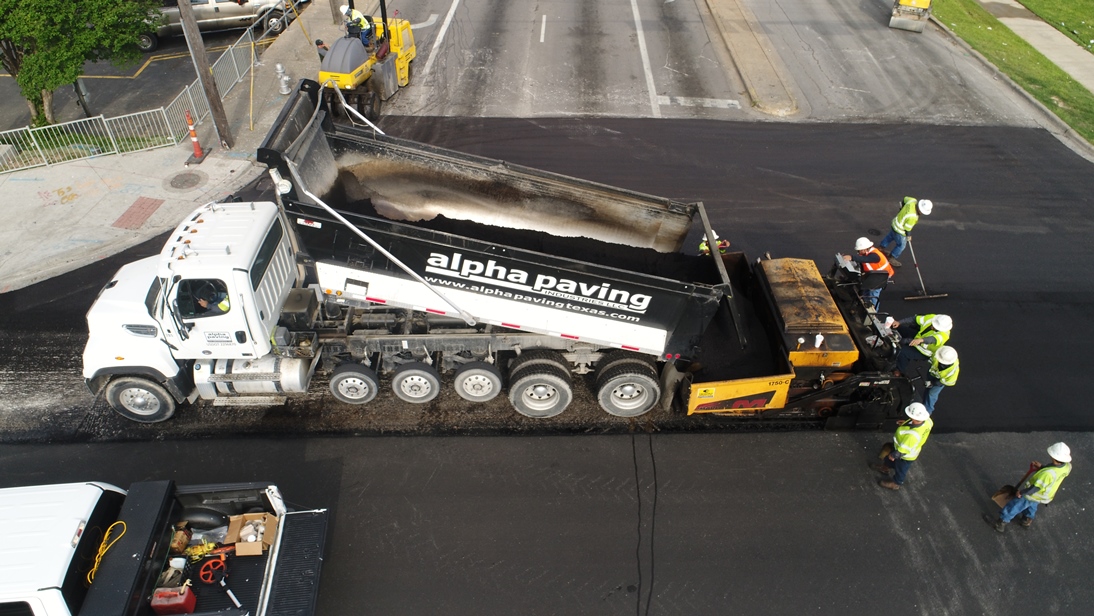

What Are Sinkholes? | Asphalt Paving
What Geologic Features Contribute to the Development of Sinkholes in the Austin Area?
Sinkholes are depressions or holes that are the result of a collapse of the pavement or ground above s subterranean void. They may appear suddenly or form gradually, and they are more common in karst terrain. Karst landscapes tend to include caves, underground springs, and prolific aquifers because the underlying rock is limestone, a soft, water-soluble material. Limestone is extremely common throughout the Texas Hill Country.
If Austin were in the Atacama Desert, the presence of limestone would not be an issue. However, the area receives more than 34 inches of precipitation in an average year, and the city is not immune to flash floods. Furthermore, Austin sits atop the Edwards Aquifer, one of the nation’s most productive aquifers that encompasses more than 4,300 square miles. Millions of years ago, the aquifer began collecting water from rain, underground springs and surface rivers. The water carved — and continues to carve — caves and channels in the soft limestone. If the water washes away enough soil beneath the pavement, the pavement can collapse into the sinkhole. Experienced asphalt paving contractors in the Austin area have become quite accustomed to finding and repairing sinkholes that develop in pavements ranging from public streets to private parking lots.
Sinkholes can be as small as a few inches across or large enough to swallow a house. Fortunately, in the Austin area, sinkholes tend to be relatively small. The massive sinkholes that periodically appear in Florida, parts of California, China and Guatemala are not standard in Central Texas. Nevertheless, even a small sinkhole can pose a danger to motorists, pedestrians, and cyclists, and a sinkhole can impact the integrity of your pavement as much as or more than a pothole with a similar diameter.
What Are Some Signs Indicating That a Sinkhole Is Imminent?
If you know the warning signs, you may be able to have a contractor make an asphalt repair before the sinkhole becomes a danger. Here are some things that can indicate a hidden void that could become a sinkhole. If you notice any of these signs, contact a reputable Austin asphalt company immediately.
• Runoff from sprinklers or rainwater pools in areas where pooling has not occurred previously.
• A small circle of grass begins wilting inexplicably. This indicates that the water meant to nourish the grass is flowing into the void.
• Fence posts or trees may sag or slump.
• Unusual cracks may develop in the pavement or the ground.
• Foundations, fences or trees may show newly exposed areas.
If you are concerned about a possible sinkhole or have other pavement-related issues, contact Alpha Paving, a leading Austin paving company. Our services include asphalt patching, asphalt paving, and overlays, asphalt milling, parking lot striping, street maintenance, crack repairs, concrete installation, parking lot signs, concrete repairs, thermoplastic pavement markings, road construction, and parking lot maintenance. We provide services to various municipalities and counties, shopping centers, property management firms, retailers, apartment complexes, restaurants, hospitals, nursing homes, hotels, subdivisions, airports, manufacturing facilities, universities, and religious institutions. Our customers know that we deliver exceptional workmanship at competitive rates. For a free quote on your concrete or asphalt repairs or other paving services, call our office at 512-677-9001 or fill out our convenient online form.

